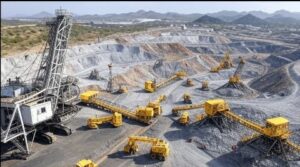Peter Koven | 04/11/13 | Last Updated: 04/11/13 9:33 AM ET
More from Peter Koven

Throughout the past year, there has been speculation that hundreds of cash-strapped junior mining companies on the TSX Venture Exchange will run out of money and simply disappear.
So far, that has not happened.
A new report from PricewaterhouseCoopers LLC (PwC), released Monday, found that only 31 miners on the Venture were delisted in the 12 months ending June 30. And most of those were due to mergers. Just seven companies were delisted because they requested it or because they failed to pay listing fees.
The result suggests that junior miners have been very resilient amid brutal market conditions. They have managed to conserve their cash and keep the lights on despite struggling to raise any new capital.
John Gravelle, PwCs global mining leader, said in an interview that many juniors have stopped working on their projects and have raised just enough from private placements and other sources to keep going.
It really demonstrates the conviction that CEOs have in their properties, he said. Theyre thinking if they can just hang in there for another year or so, hopefully things will turn around and theyll get rolling again.
He noted the Venture exchange relaxed some of its rules this year, which may have kept more companies from delisting. For example, the exchange lowered the minimum conversion price for debentures and warrants and made it easier for companies to conduct share consolidations.
While delistings have been minimal, the PwC study details just how grim the sector looks right now.
It found that the cumulative market value of the 100 largest companies on the Venture exchange was $6.5-billion as of June 30, down 44% year-over-year and down 68% since June of 2011, when they were worth $20.6-billion.
In fact, valuations have plunged so far that miners are no longer the dominant force on the Venture exchange. Mining companies represented 35% of the Ventures total market value in June of this year, according to the study, down from 51% in 2012. The Venture is often called a mining exchange, but the raw numbers suggest this is no longer really true.
Juniors are facing a multitude of challenges, including falling commodity prices and a drop in M&A activity. But the biggest problem is access to capital. The top 100 companies raised about $911-million of cash from financing in the 12 months ended June 30, a drop of $462-million from the prior year. Their cash positions plunged 36% in that period.
The top 100 companies are, for the most part, the ones with the best prospects in the sector. Financing conditions are much worse for the weaker companies.
The junior mining sector has always been full of optimists, and Mr. Gravelle said they have not wavered as the long-term demand picture for commodities remains fairly positive. But I dont think anyones having any great hope that this [recovery] is going to happen anytime sooner than 12 months from now, he said.
The miner with the largest market cap in the study was Sierra Metals Inc., a precious and base metal producer that graduated to the Toronto Stock Exchange last summer. Gold Reserve Inc. came in third, even though its value is locked in an arbitration case against the Venezuelan government.
Financial Post
















